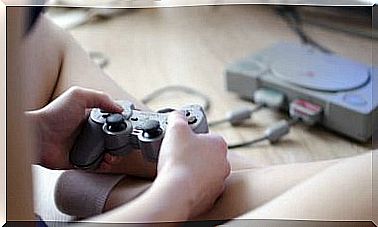Why Is Sugar So Addictive For Children?

Sugar is a substance that is present in many foods. From candy and soda to canned goods like canned corn. As if that weren’t enough, it can even be present in ketchup sauce. Therefore, if you do not pay attention to product labels or follow good eating habits, you can consume excessively, without being aware of it.
Children are one of the sectors of the population most exposed to excessive consumption of sugar and other non-nutritive substances. And while doctors are constantly calling for attention, there is still a lot to do about it.
Sugar, a very addictive substance
It is no secret to anyone that sugar is a very addictive substance. At the moment in which it is taken, it costs a lot to moderate its quantity and, too often, after a short time after consuming it, more is desired. If you are not aware of this and your willpower is increasingly depleted, this becomes a problem.
Far from satisfying the nutritional needs of the body, sugar is rather a detriment to health in several areas, both in children and adults, outside of aesthetics. Thus, cavities, being overweight and premature aging are just three of the many problems it can cause.

Sugar produces a spike in adrenaline, which leads to arousal. Therefore, it prevents relaxation and instead promotes irritation and lack of concentration. Additionally, sugar interferes with the body’s satiety mechanism, making you believe that you are hungry all the time and that you need more food.
When consumed excessively, sugar can produce alterations in mood and promote the appearance of problems such as anxiety and depression. The reason for this is that glucose stimulates the secretion of serotonin (the so-called “pleasure hormone”) on an ongoing basis, making it often more difficult to feel good without sugar.
Tips to reduce sugar consumption
In order to successfully reduce sugar consumption at home, it is important not to try to eliminate it altogether overnight, as this could backfire.
Being deprived of sugar, the body will proceed to demand it in various ways, with which, various symptoms can be experienced, such as headache, dizziness, muscle weakness and even anxiety. It should be noted that these symptoms usually disappear once the body gets used to working without this substance.
The ideal is to progressively reduce the amount and look for healthy substitutes (such as organic honey, agave syrup, among others).

Here are some helpful tips. However, we invite all parents to consult with their pediatrician, GP or nutritionist before making changes to the family diet.
- Take care of your meals. Prevent children from spending many hours at a time without eating and skipping meals, as this will only lead to overindulging and unhealthy choices at mealtime.
- Teach children not to add sugar to their food. If they are having a plate of oatmeal or other cereal, or a glass of milk, it is necessary to teach them not to add sugar. In order not to deprive them of the sweet taste altogether, you can give them half a teaspoon of organic honey (without sugar, preservatives or additives).
- Be a good example to follow. Your children need to eat healthy foods to learn to eat well and to do so, you must be a good example. Remember that they always seek to imitate the elders.
- Provide healthy choices. Once children are old enough to eat snacks on their own, it is important that they can find healthy options in the kitchen to make them. So, avoid buying sweets, pastries and other non-nutritious products.
- Make your own healthy jams and snacks and leave them on hand.
- There are many foods that do not have processed sugar and provide energy. Fruits, nuts, or vegetables are a good example.
- Instead of giving children snacks with candy, pastries, and similar edibles, it is recommended to give them a piece of fruit that they like.
Conclution
According to the World Health Organization , sugar consumption should not exceed 5% of the usual food intake. In an adult, this would translate to about 25 grams (6 teaspoons).
It is essential that parents provide their children with a balanced diet and teach them healthy eating habits, depending on their age. In this sense, by moderating the consumption of sugar, you will take care of the health of the little ones and, in turn, will even favor their academic performance.










